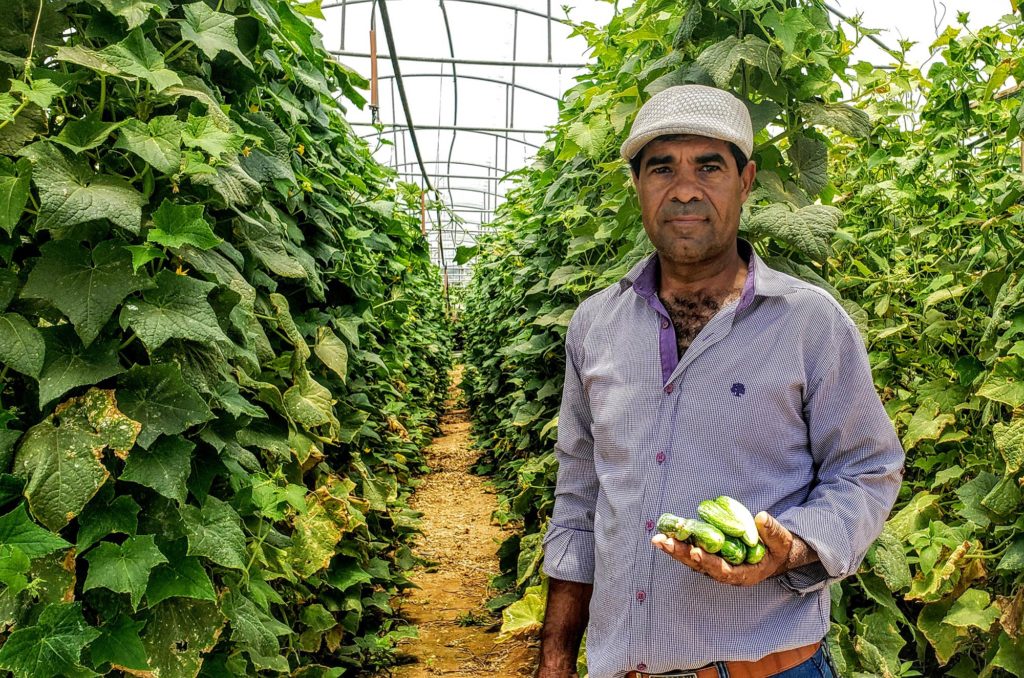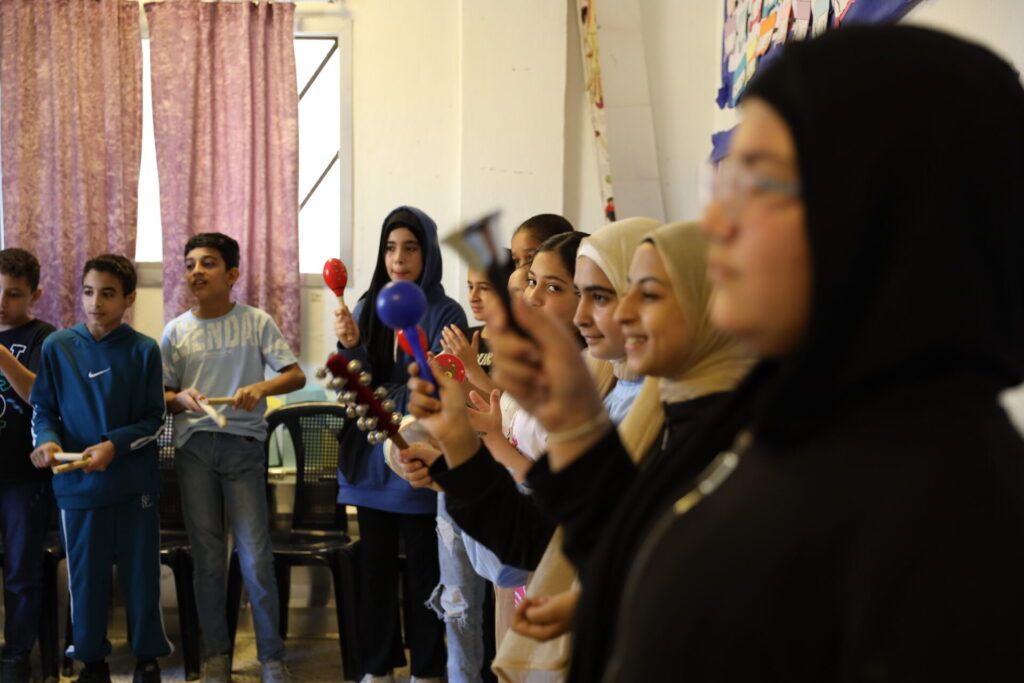AGRICULTURE
Greenhouses are thriving this summer in Gaza
Jul, 2020
“It felt so rewarding to share the bounty and spread a little joy around.” — Fayez
Fayez is a resident of the village of Al Attarta, near Beit Lahia in northern Gaza. The 50-year-old farmer was born and raised on this land. Fayez has devoted the last 40 years to farming.
His connection to the land not only comes from spending his entire life on it, but because he also grew up close to the strawberry farms. As a boy he used to literally follow in his father’s footsteps as he accompanied him to the farms, seeing firsthand what it takes to be a real farmer.
“If I wanted to please my father as a 10-year-old boy, I had only to show him that I had memorized a tip on growing plants,” he says with a smile. Growing up in a large family meant that Fayez was always trying to master a new skill to attract his parents’ attention. “Life was all about getting some gesture of satisfaction from them.”
Before introducing greenhouses, farmers like Fayez used to grow seasonal crops in the open field, thus the harvest was so limited to a certain time of the year.
“Ever since we began growing vegetables inside greenhouses, we have expanded our growing season a lot. And we’re so grateful,” he says.
When harsh torrential rains hit Palestine last March, the wind blew the covering sheets off a quarter of the greenhouses in Gaza. This endangered the crops — the source of income for most of these farmers.
“If the greenhouses had not been repaired quickly, it would have meant a huge loss for the farmers,” Fayez says.
Now, Fayez is growing cucumbers as the main crop in his farms. He thinks of it as a safe crop to plant.


“Whatever happens, cucumbers are always wanted in the local market.”
Every other day, Fayez sells his cucumbers at the local market. Despite fluctuating prices, he was able to bring in $114 (400NIS) twice a week. That means $2,700 (9,600NIS) per harvest season, which, for cucumbers, usually runs about three months.
“Anera came at just the right time. We have got a better harvest this season. This is our family land and feeds all of us,” he says.
Due to the COVID-19 pandemic and the further squeeze it has put on the economy, it is more urgent than ever to offer ways for poor local farmers to earn sustainable incomes.
Fayez says Anera has helped support his farming, not only by repairing his greenhouse, but through purchasing from him as a supplier of fresh produce for the Ramadan food parcels that we distributed to families in need. He comments,
“It felt so rewarding to share the bounty and spread a little joy around.”




